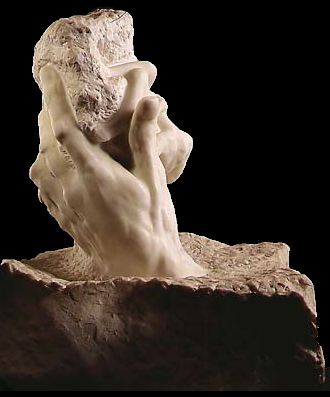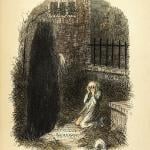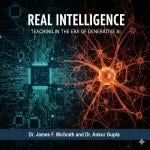 A Still More Glorious Dawn Awaits1
A Still More Glorious Dawn Awaits1
As Luke’s gospel tells the story, the religious leaders, soldiers and a criminal mocked Jesus on the cross. “You saved others, now save yourself,” they said. But he did not. For Jesus thought it unfaithful to hang onto life when to relinquish it meant that a still more glorious dawn might arise over what he called the “Kingdom of God” – the reign of God, a vision founded on liberty – that brand of freedom which requires and inspires creative responsibility, a vision dependent on the process of repentance, forgiveness and penance, that drives development and growth, a vision of the creative power which has animated creation’s story for 13.7 billion years and calls us home into the presence of God. With that vision filling his heart, Jesus cried out in a loud voice, “Father, into your hands I commit my spirit.” Then he breathed his last; he let his spirit go.
I mention this because once again the body of Christ, or at least the Mainstream Protestant version of it, is on the cross. We are dying, and so we are presented with a choice. We can hang onto what we have been; we can hang on to our theological language, insisting we have the truth; we can hang on to our endless, divisive fights for purity and justice; we can proceed with our useless, interminable efforts to get a culture which has left us behind, to come back; or we can commit our last breath to a still more glorious dawn just now beginning to rise over the next iteration of the reign of God.
________________________________
Israel. Fluid, for as the nation’s history unfolded so did its Scriptures. The division of the nation, the destruction of the northern tribes, the Exile, were each critical moments begging for interpretation in light Israel’s understanding of their God – their theology. Through each crisis their understanding of the God of Exodus, Sinai and Exile, the God of liberty, developmental possibility, and spiritual union, developed and grew. In the process new layers were added to Torah, new interpretations and perspectives included, until the Hebrew Scriptures became a rich tapestry describing the reign of God. Through this evolutionary process Judaism developed and survived, serving the Jewish people as they sought to live faithfully to God in a largely Semitic world – that is, until the Roman Empire swallowed them whole.
Roman Empire operated out of vastly different cultural, political and philosophical assumptions. And while the Hebrew Scriptures offered and continue to offer a vision of God’s future to the Jewish people, the nationalistic vision they intoned was inadequate to inspire the reign of God in the hearts of those formed by such a vastly different worldview. For a vision of God’s reign to take hold in this milieu, a new theological language would need to emerge.
Some were inclined to hang on to the language forms of the past, 2 but a Rabbi named Jesus recast the vision of God’s reign. No longer was the Kingdom of God to be understood in nationalistic terms, instead God’s reign could be seen in the lives of those who trusted in the God of liberty, developmental possibility and spiritual union – the God at work all around them.
After Jesus’ death and resurrection,2 it was left to others to fill out his vision of God’s reign and so Christianity was born. New Scriptures emerged which spoke in different theological terms but – and this is key – they were pointing to the very same God which the Hebrew Scriptures so richly reveal.
Israel responded to historical circumstances, so did Christianity. For 2000 years it has flourished, offering faithful people a theological framework in which to serve their God. One of those responses is what we call “Mainline Protestantism.”
But Christian faith has encountered a challenge – a one-two punch – that it has not, and I suspect will not, overcome. Modernism with its demand for verifiable truth, has effectively destroyed the veracity of our foundational stories. “Virgin Birth? Don’t be ridiculous. Magic blood? Oh, come on.”
If that weren’t bad enough, the emergence of post-modernism undermines even the possibility of securing the truth. Our theological language is inadequate to inspire the reign of God in the hearts of those formed by such a vastly different worldview. Look around us, wherever a modernist worldview has taken hold, Christianity is dying; it’s just a matter of time.
_______________________________
So, is there a future for Mainline Christianity? I don’t know. It is clear to me that we are once again on the cross. And at this critical moment we need to do what Jesus did. We need to reach into the depths of our tradition and recast a vision of the reign of God – recast a vision in terms that can lift the modernist world from spiritual despair, recast a vision enriched by conversation with all people who faithfully seek to respond to the presence of God. But let’s be clear, that vision must point to the same God our linage has known for 4000+ years.
Will Christianity as such survive such an effort? Could be. But whether we do, or whether we don’t, a still more glorious dawn awaits the reign of God. For it does not depend upon us; it depends upon the one revealed as the God of Israel, the one revealed as the Triune God of Christianity; it depends upon the one who offers everyone the beauty of each new dawn.
Shall we try to get ourselves off the cross, or shall we commit our last breath to a still more glorious dawn just now beginning to rise over the next iteration of the reign of God? That choice is ours.
_______________________________











